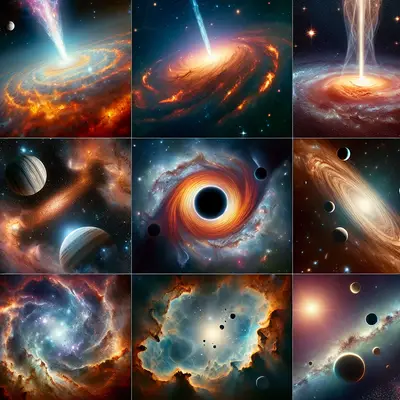1. The First Molecule in the Universe
In 2019, NASA's airborne observatory SOFIA detected helium hydride, the first type of molecule to ever form in the universe. This discovery affirmed a long-standing theory in the realm of cosmic chemistry and opened up new vistas of understanding about the early universe. The detection of this primordial molecule provides a missing link in our understanding of the chemical evolution of the Universe.
2. The Mysterious Fast Radio Bursts
Fast Radio Bursts (FRBs) are one of the most intriguing mysteries of the cosmos. These are millisecond-long flashes of radio waves that originate from outside our galaxy. The exact cause of these bursts is still unknown, and their fleeting nature makes them difficult to study. However, recent developments in radio astronomy have led to the detection of hundreds of these enigmatic signals, leading us closer to unraveling their mysteries.
3. The Enigma of Dark Matter
Despite being invisible and undetectable, dark matter is believed to make up about 27% of the universe. Its existence is inferred from its gravitational effects on visible matter, radiation, and the structure of the universe. While the nature of dark matter remains an enigma, its discovery has been instrumental in explaining the formation and evolution of galaxies and the large-scale structure of the cosmos.
4. The Discovery of Exoplanets
Over the past few decades, scientists have discovered more than 4,000 exoplanets, planets that orbit a star outside the solar system. These discoveries have revolutionized our understanding of the universe, suggesting that planets are more common than stars. Some of these exoplanets, known as "Super-Earths," are even thought to harbor conditions suitable for life.
5. The Existence of Gravitational Waves
In 2015, scientists made the groundbreaking discovery of gravitational waves, ripples in spacetime caused by violent cosmic events. This confirmed a major prediction of Albert Einstein's General Theory of Relativity and opened an entirely new way of observing the universe. The discovery of gravitational waves has ushered in a new era in astrophysics, enabling scientists to study phenomena that were previously inaccessible.
Conclusion
From the detection of the universe's first molecule to the discovery of gravitational waves, these five amazing space discoveries have transformed our understanding of the cosmos. They remind us of our place in the vast universe and inspire us to continue exploring the infinite mysteries of the cosmos. As we deepen our knowledge and unravel more cosmic secrets, we realize that our journey through the universe is just beginning.



